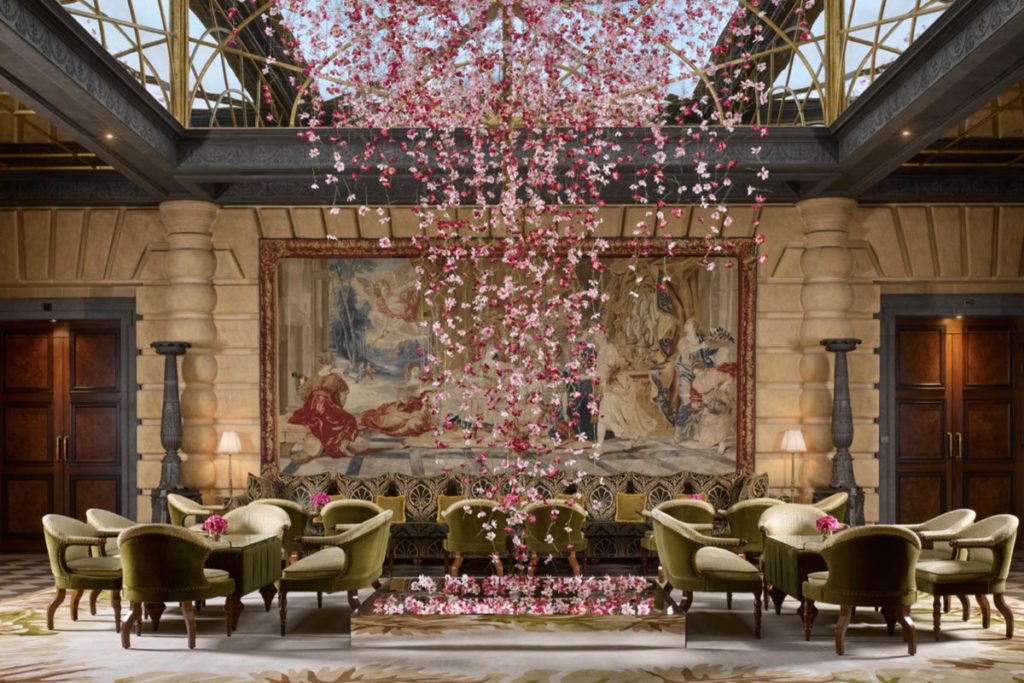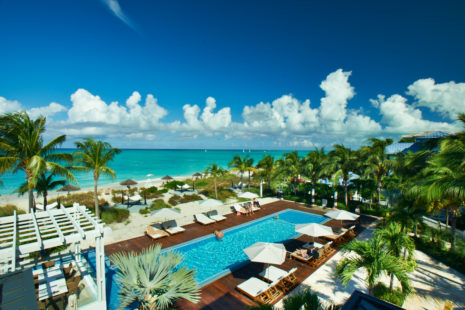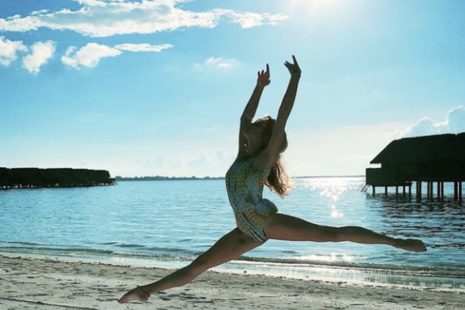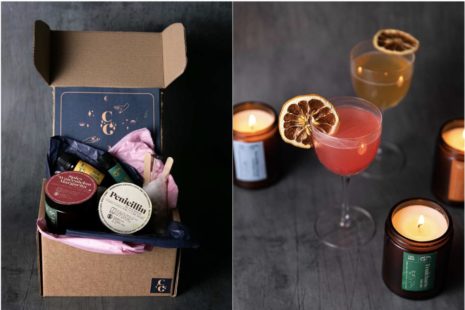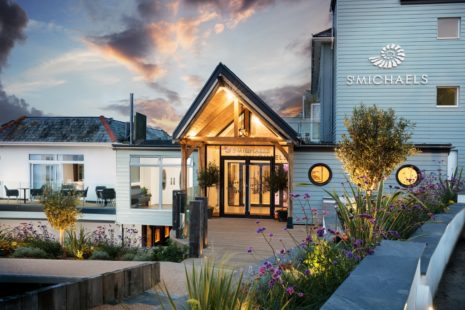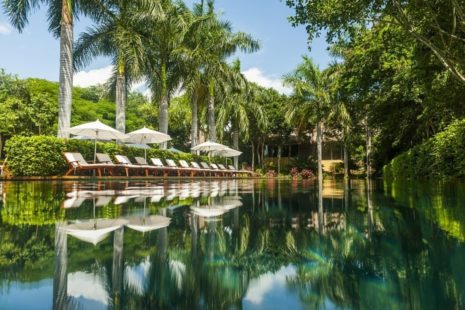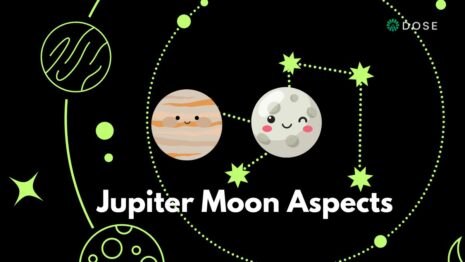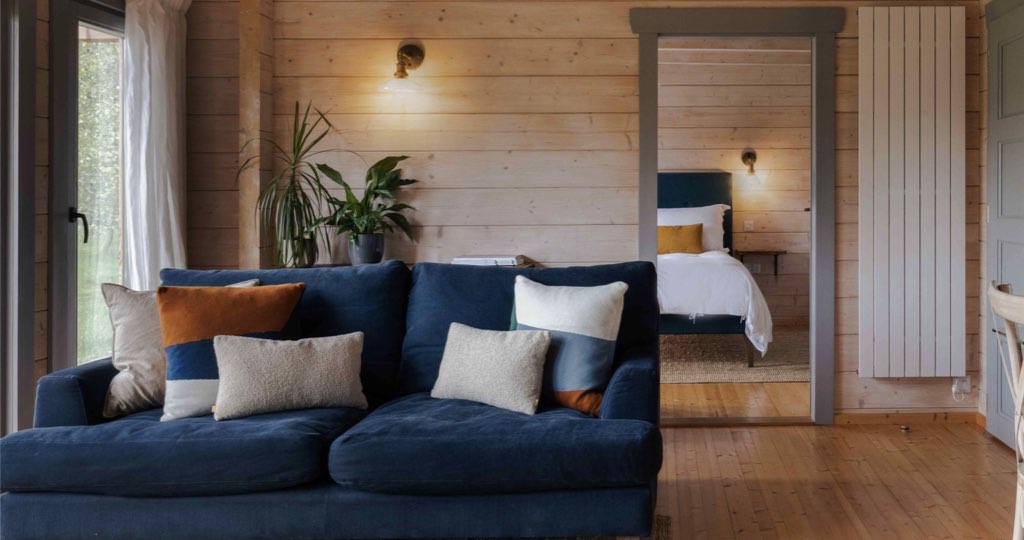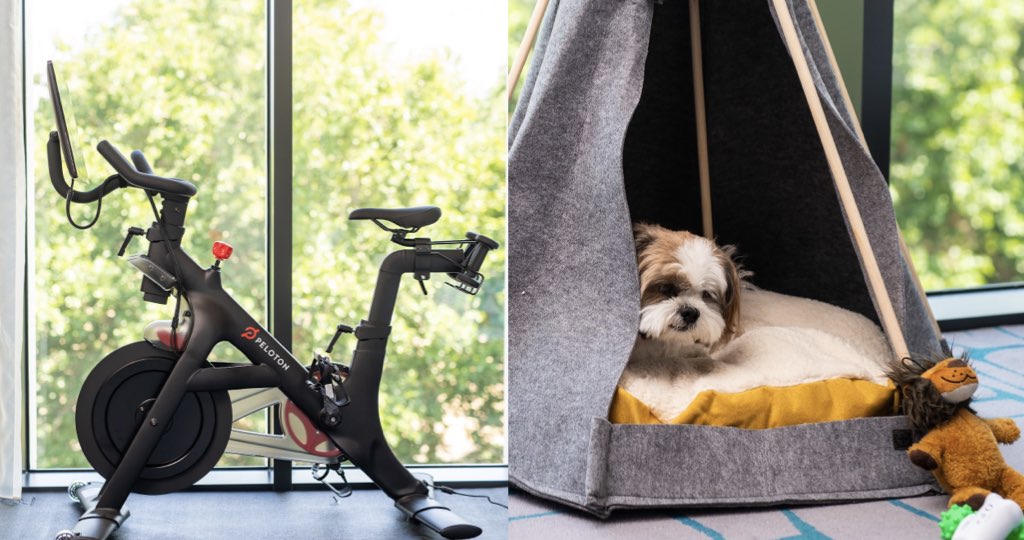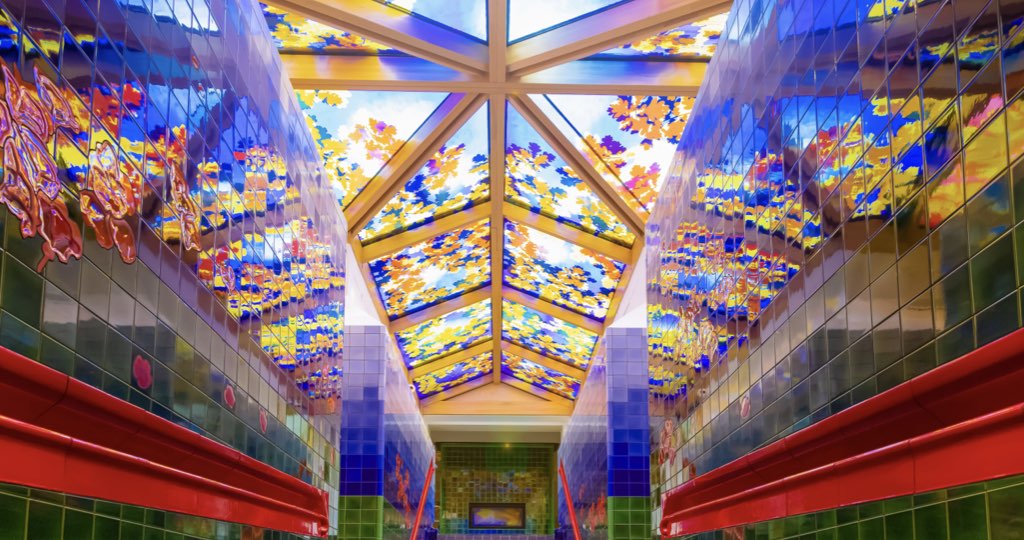Jetting off this winter? Offset your carbon footprint by staying in an environmentally friendly hotel. Here are some of our favourite finds…
Hotel Metropole, Monte-Carlo
The Hotel Metropole Monte-Carlo has joined the initiative of the Prince Albert II of Monaco Foundation: “Monaco commit against Deforestation”. So, it is committed to the reforestation of a burnt hillside overlooking the town of Menton. It also works to preserve endangered marine species – all fish in the hotel’s restaurants are caught by responsible fisheries and focus on fish other than well-known classics. Plus, the Hotel Metropole was the first hotel in the Principality to have banned plastic straws.
MarBella Corfu
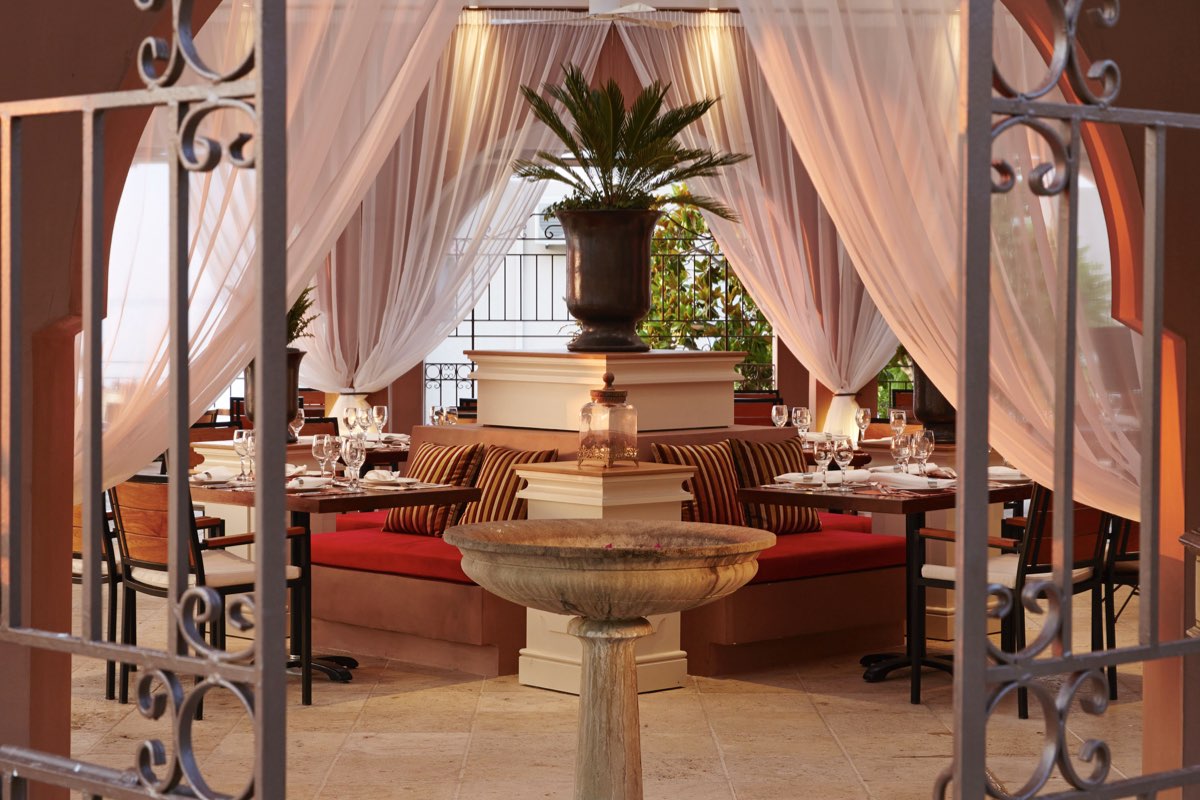
Situated in Corfu, MarBella Corfu has the Posidonia Meadows found on the seabed right in front of the hotel. They are grassy meadows located in clear, unpolluted water, home to sea stars, sea urchins, sea cucumbers and larger fish. The meadows act as a wave breaker to protect the ecosystem and the shore. Sand is preserved and produced in the meadows, ao shores are constantly enriched. Plus, the biological activity of the meadows accumulates carbon while producing oxygen. Without the Posidonia Oceanica, the stored carbon would be released back in the atmosphere as a greenhouse gas. Guests can see the exhibition on the meadows at the hotel, or snorkel in them.
The St. Regis Maldives Vommuli Resort
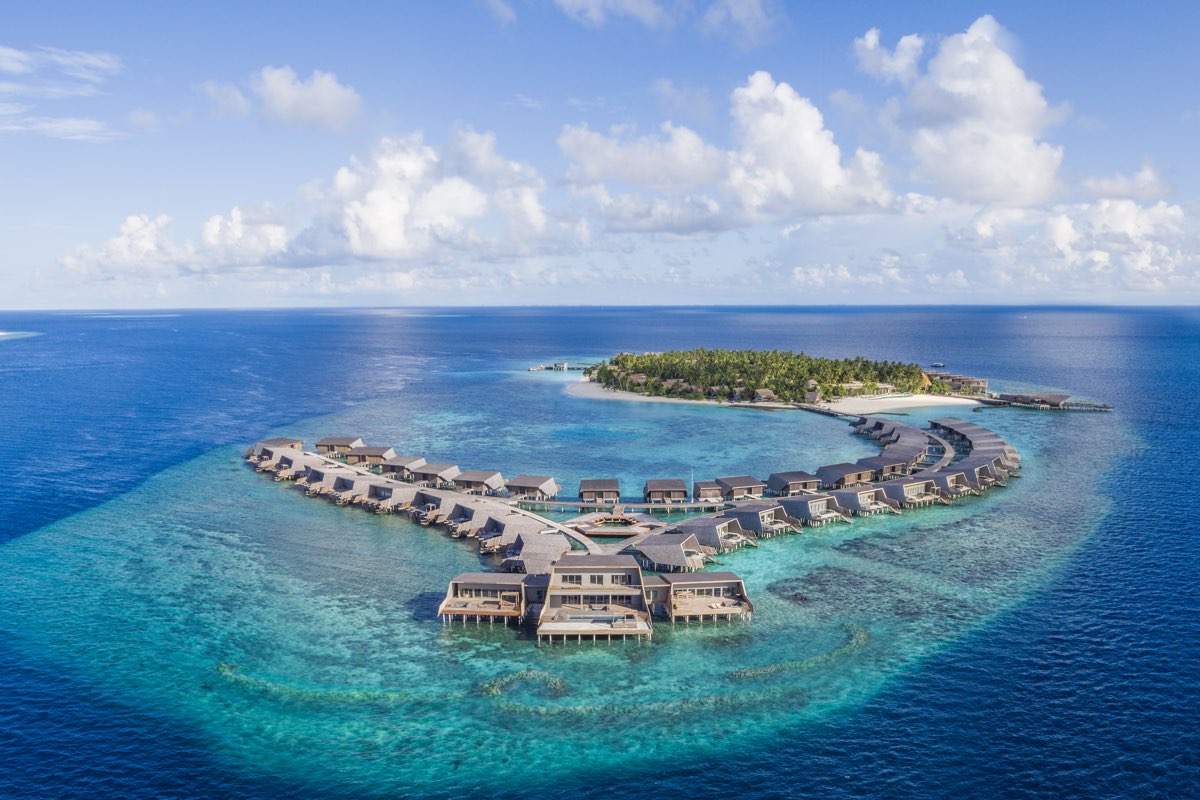
2015 to 2017 saw devastating coral bleaching: 80% of corals worldwide were bleached with vast amounts of coral dying off. After this, outbreaks of coral diseases became more common. So, The St. Regis Maldives Vommuli Resort launched ‘Adopt a Coral’. Guests can work with onsite marine biologists and get involved with the resort’s regeneration of coral fragments. Select and name the coral, have a presentation from marine biologists, and attach the coral to the underwater rope frame. You’ll receive quarterly updates on its progress and after 12 – 18 months, the coral will be mature enough to be transplant onto to the reef.
Islas Secas
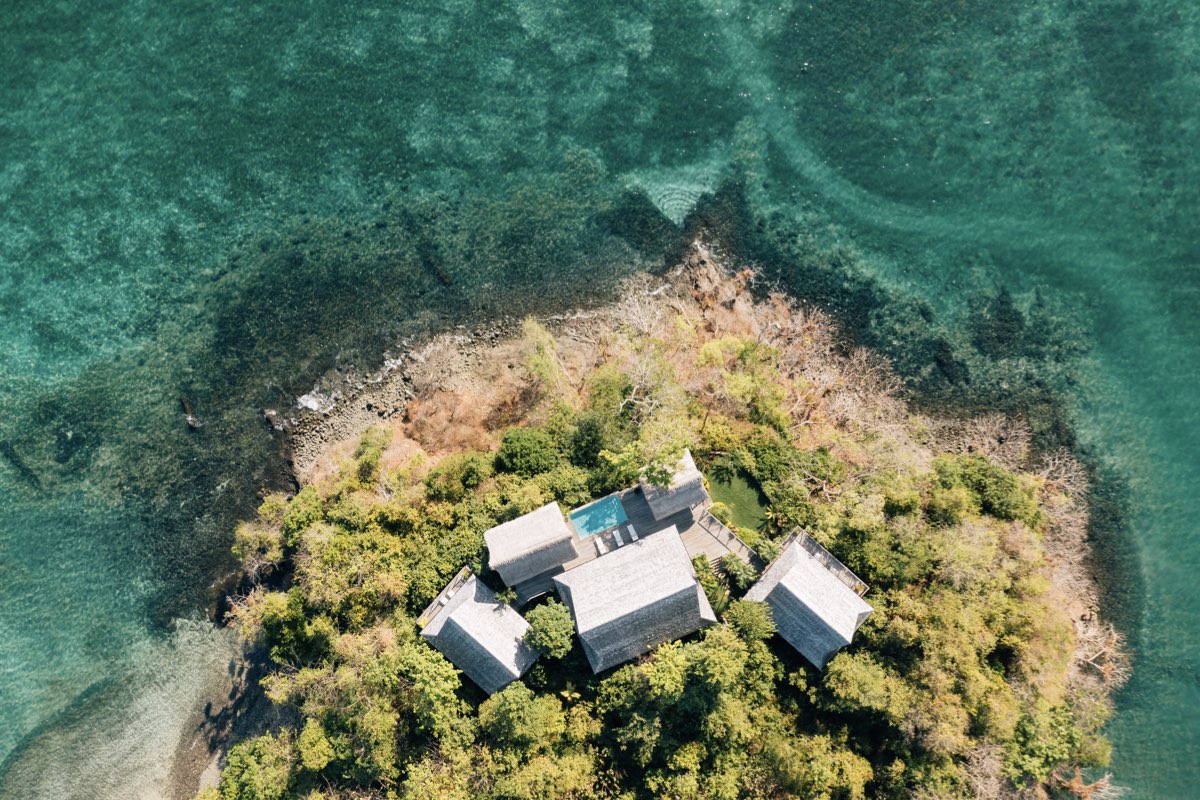
Islas Secas on the Pacific coast of Panama is set off-the-grid. It is totally powered by its surrounding environment. 100% of the property’s energy is solar-generated and 100% of food waste is recycled. Plus, 100% of waste water is re-used for irrigation and 75% of the archipelago has been left untouched and undeveloped. The Casitas and all island facilities have also been built from certified sustainable wood. Islas Secas also enforces a ‘no single-use plastic water bottles’ policy. It has also planted thousands of native Panamanian trees to ensure the natural integrity of the island remains.
Six Senses Fiji
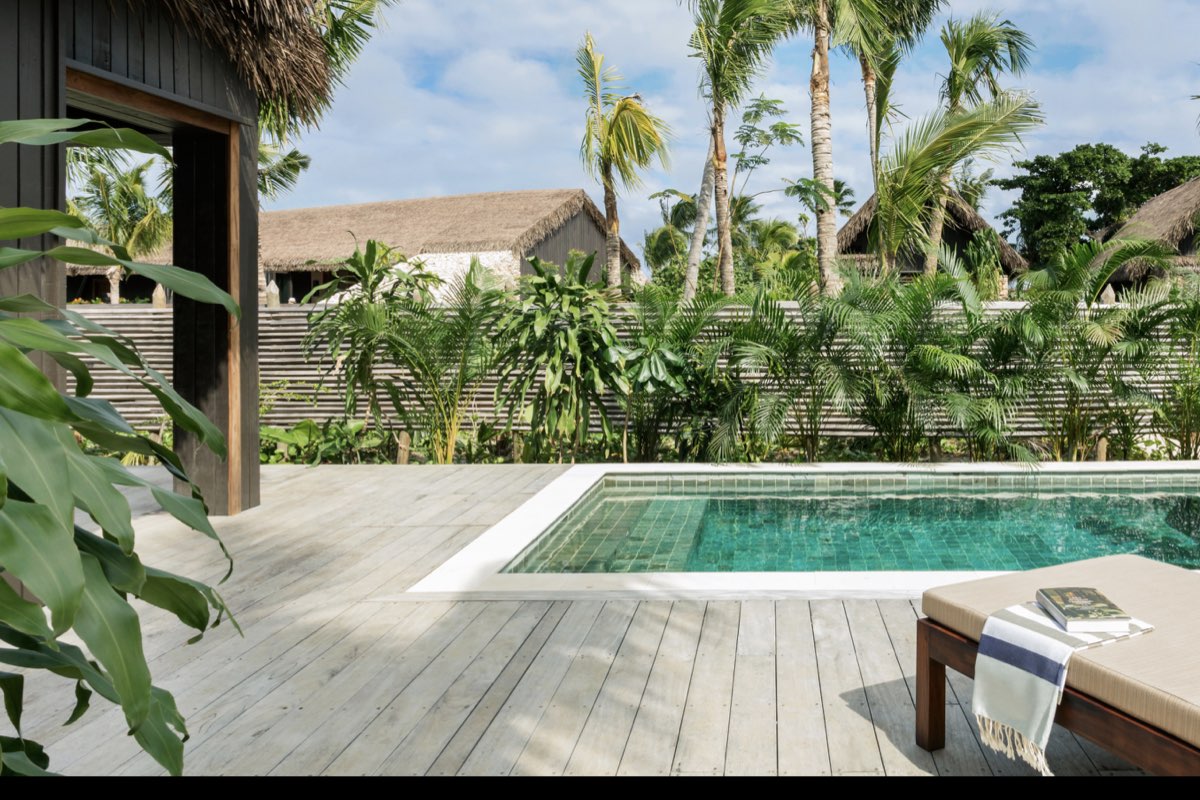
Six Senses Fiji is 100% solar powered and the first hotel of its kind in Fiji to power all of its electricity from a Tesla battery power grid. LED lighting minimises energy expenditure and reforestation programme helps offset the environmental impact of construction. The resort also collects rainwater using worm-based septic tanks. It has its own reverse osmosis plant and water refinery producing high quality drinking water without plastic bottles. Guests can enjoy locally-inspired cuisine sourced from the hotel’s own vegetable garden, local markets, and farmers and fishermen. The goal is self-sustained food and beverages on the island, reducing the environmental footprint.
Jumby Bay Island
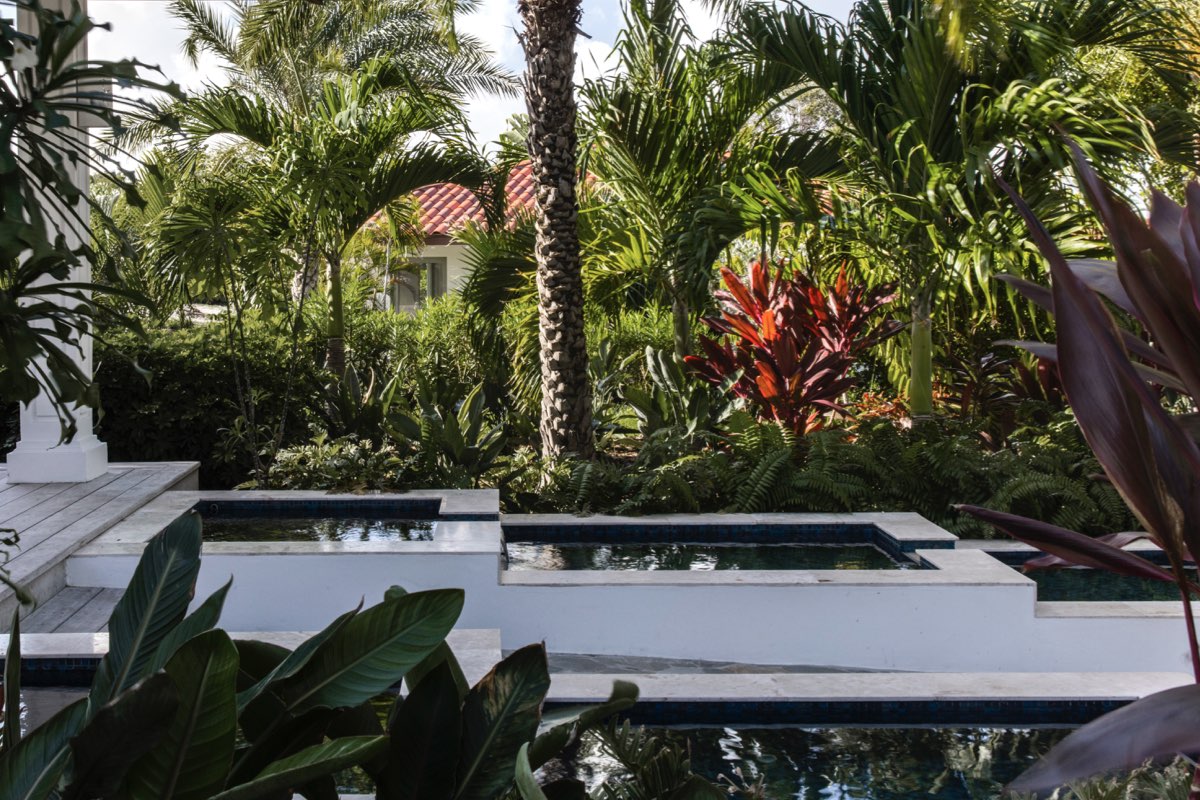
Jumby Bay is a private island in the Caribbean. Each year, from June to November, an expertly-lead team monitors the nesting colony of hawksbill turtles on Long Island, Antigua. More than 450 turtles have been identified and tagged. Plus, hundreds of thousands of hatchlings have scurried down the sand into Pasture Bay to begin their life journeys. Through Jumby Bay’s ‘Adopt-a-Turtle’ programme, guests can name their hawksbill turtle and follow its adventures throughout the Caribbean using satellite tracking.
Six Senses Laamu
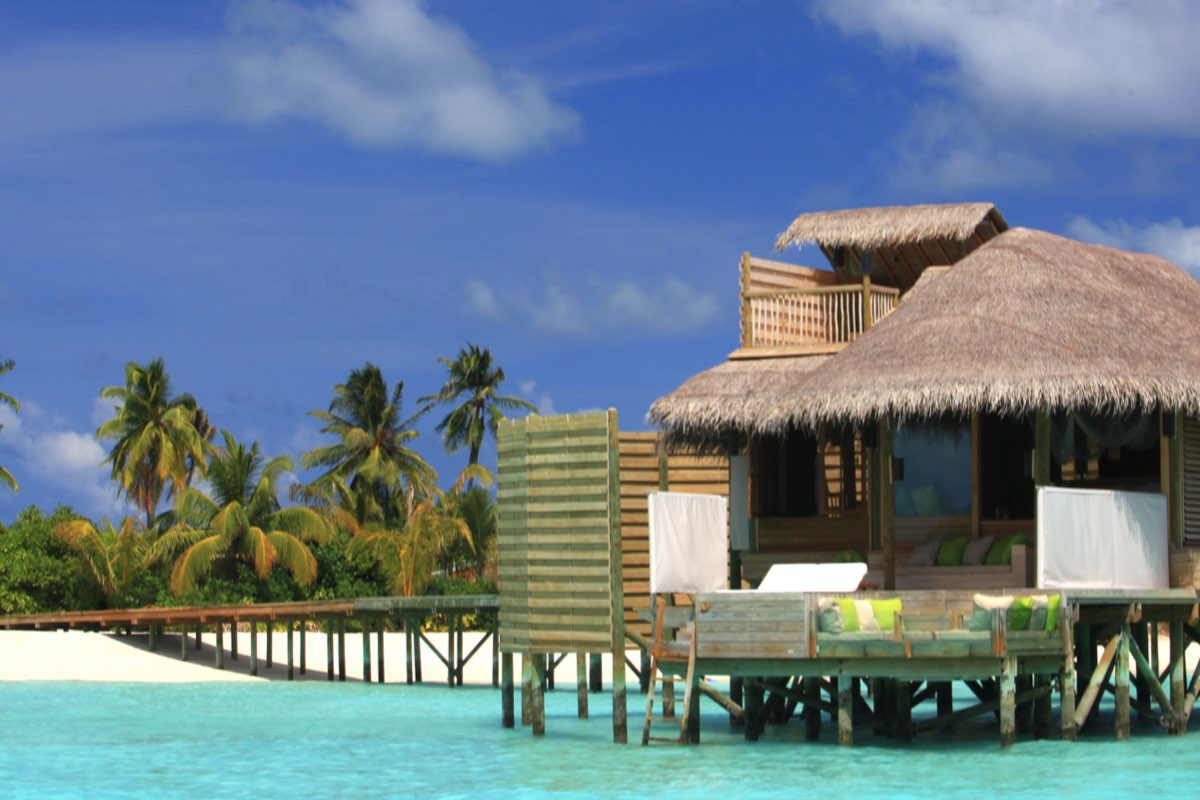
Six Senses Laamu in the Maldives is encircled by clear turquoise waters that are home to an array of sea creatures, plants and coral. The resort has recently helped to create the world’s first non-invasive underwater ultrasound scanner. The Duo-Scan: Go Oceanic allows contactless scanning of wild marine animals, up to a depth of 30 metres. Laamu is home to 125 reef manta rays which breed twice a year. The team has managed to get ultrasound scans of wild pregnant and non-pregnant reef manta rays, helping them to determine rates of reproduction in the wild and to guide conservation strategies.
Six Senses Zil Pasyon, Félicité

Sustainability is at the heart of this resort. An on-site team works to restore the island’s ecology to a natural state that supports local flora and fauna. Last year, the critically-endangered Wright’s gardenia flower endemic to Seychelles bloomed for the first time on Félicité thanks to the resort’s efforts. Birds being re-introduced include the Seychelles Magpie Robin, Seychelles Paradise Flycatcher and Seychelles Fody. The resort manages its own reverse osmosis plant and crystal water refinery. Guests can also pay a visit to the chicken farm and organic garden on site.
Nihi Sumba

Sumba is a beautiful Indonesian island 250 miles southeast of Bali. As part of their stay, guests are encouraged to volunteer with The Sumba Foundation, which aims to lessen the consequences of poverty across the island. The Sumba Foundation has helped build 60 water wells and a network of 250 water stations, providing water to 25,000 people daily. In 2008, the team launched their School Lunch Programme. Children who live on the island were often going to school without lunch and often without breakfast so the Sumba Foundation worked to provide three nutritious meals a day. Plus, Guests of Nihi Sumba can volunteer at the local school.
Singita Serengeti
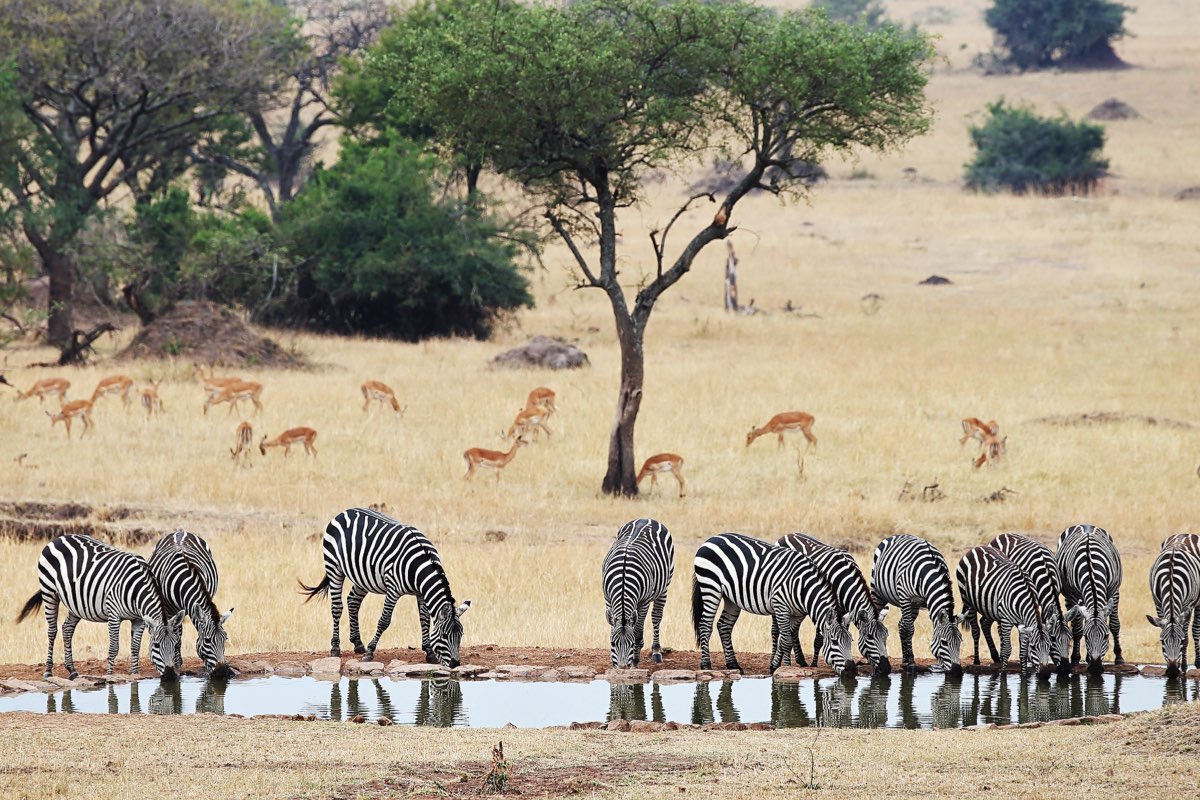
At Singita Serengeti House, you can have sundowners at one of Singita’s anti-poaching observation points and meet the anti-poaching task force for a first-hand insight into the new tactics Singita have introduced to combat wildlife poaching. Formerly made up of several hunting concessions, there were virtually no animals left in the area when Singita took over the reserve and even the migration avoided the area. 15 years on, the turnaround has been extraordinary. Results include a four-fold increase in wildlife numbers since 2003, including a four-fold increase in elephants, accounting for ¼ of the elephant population in the Serengeti.
Taj Exotica Resort & Spa, Andamans
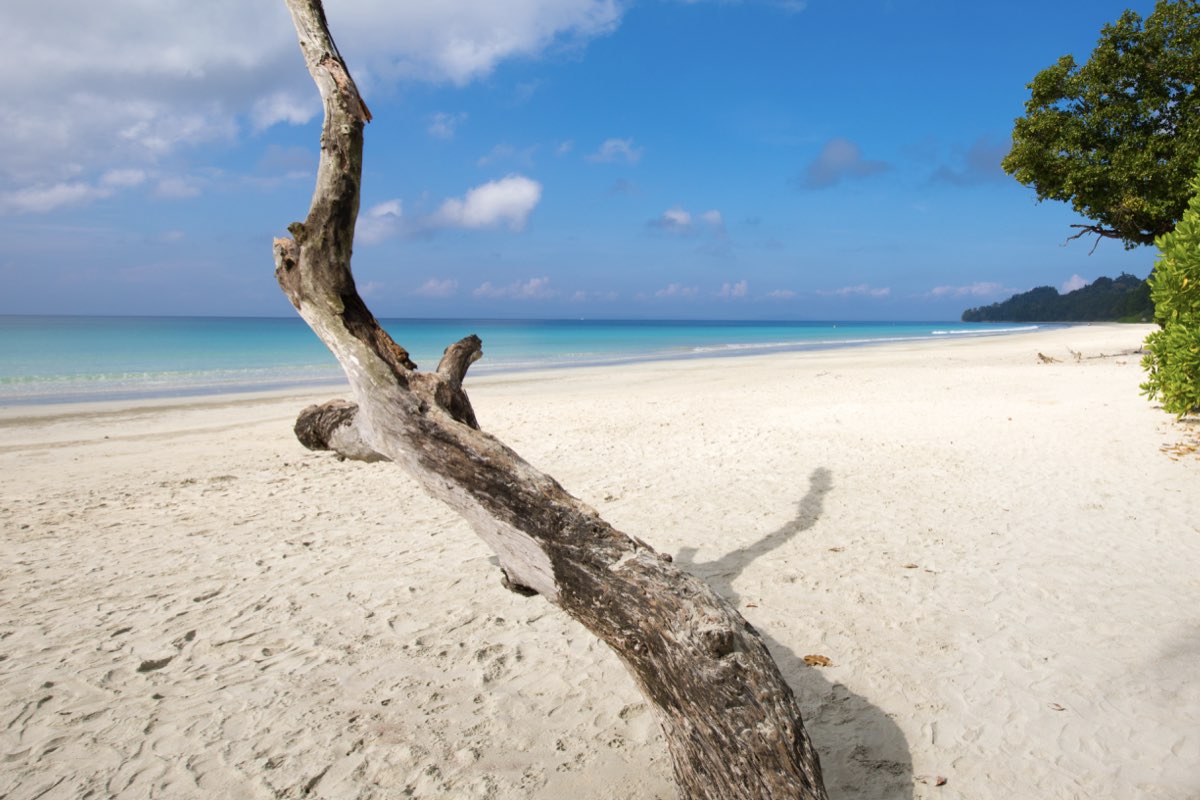
This resort is Taj’s first Zero Single Use Plastic Hotel. Plus, not a single tree was felled during the building of the resort. There is a waste disposal system converting wet waste to gas and compost and a sanitation treatment plant to limit its carbon footprint. Explore the jungle with the in-house naturalist who works closely with the local NGOS and authorities. The goal is preservation of the marine life and the natural environment, which enjoys an abundance of bird life.
Get your weekly DOSE fix here: SIGN UP FOR OUR NEWSLETTER
